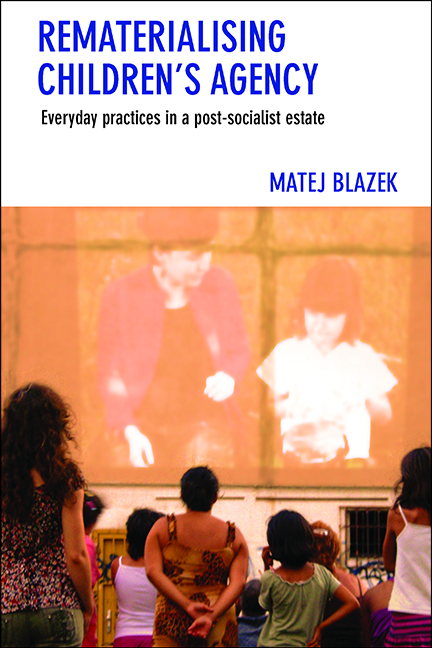nine - Family life
Published online by Cambridge University Press: 01 September 2022
Summary
As the previous chapter shows, exploring children’s everyday encounters with other people indicates that other factors existed behind the passing moments of the encounter. In some cases, children’s attitude towards other people was formed through the prism of expectations rather than through actual knowledge, while elsewhere a long-term history of contact and the sedimented nature of experiences with the other person shaped children’s practices in the encounter. Chapter Eight raised the question of other people’s significance in children’s everyday actions, and in this and the following two chapters, I will focus on children’s long-term ties with other people and the ways in which they affect children’s practices. This chapter explores one of the children’s most important relationships – with the family and family life – significant because of their frequency, intensity, and relevance to other everyday circumstances, but also because of children’s own views about them.
The literature on childhood, the family and intergenerationality is too extensive to be reviewed here (Holt, 2011; Musgrove, 2012) and, perhaps more than before, I need to be careful about setting the scope of the chapter. Therefore, I am interested in the relationships between family patterns and the dynamics of children’s everyday acts in which family (as a legal framework as well as a set of routine arrangements and emotional ties) comes to act in children’s practices. In other words, family itself is not the subject here. The chapter is structured around two themes: in the first section, I discuss the composition of children’s families in Kopčany, depicting the patterns of the relationships that stem from children’s family lives and meander through their everyday activities. Tracing the most sedimented circumstances of children’s everyday experiences as they are rooted in their families, I then focus on two types of dynamics in children’s family relations – children being cared for by other family members and children being responsible for other family members. I also uncover the link between the latter and the configurations of children’s peer relationships in their families, and with the question of friendship and its importance for children’s everyday practices that is further discussed in Chapter Ten.
- Type
- Chapter
- Information
- Rematerialising Children's AgencyEveryday Practices in a Post-Socialist Estate, pp. 159 - 178Publisher: Bristol University PressPrint publication year: 2015



